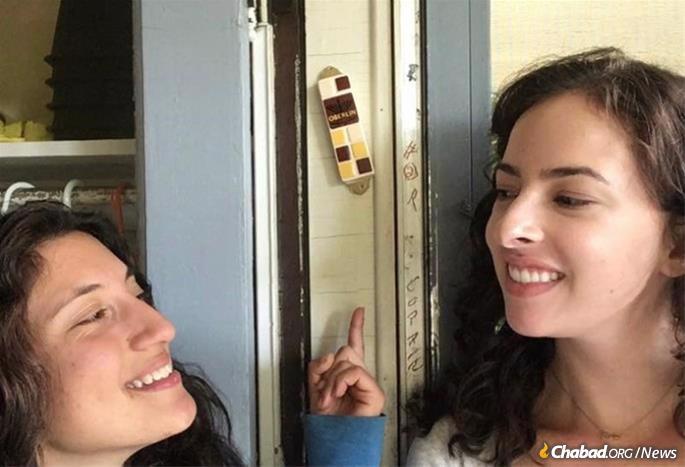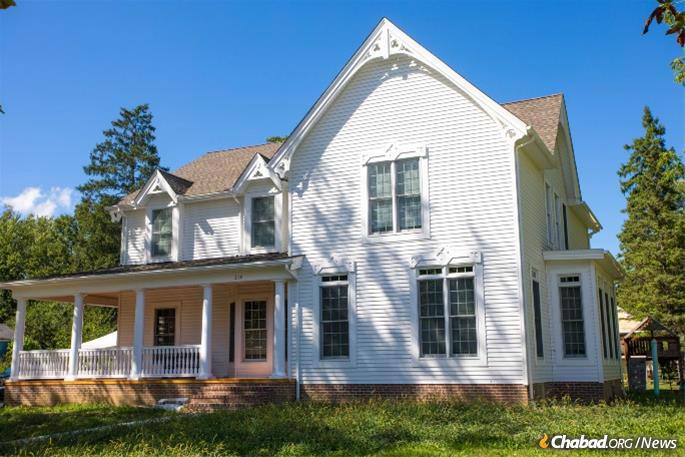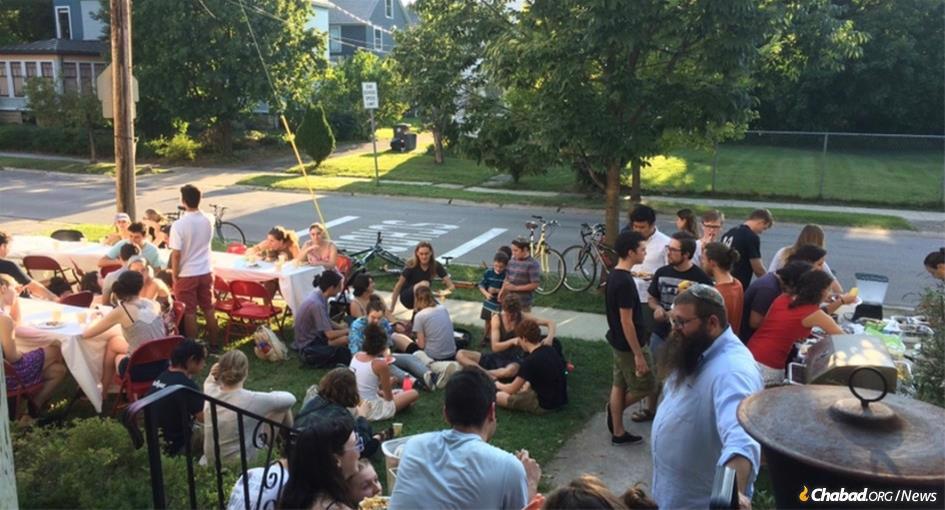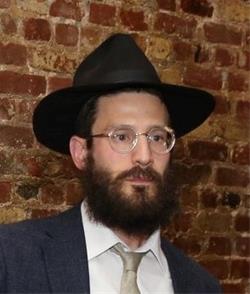Diversity has long been a part of Oberlin College in Ohio’s DNA. Black students were admitted in 1835, two years after the institution’s founding. Women were accepted from day one, and allowed to enroll in the bachelor’s program beginning in 1837. Despite some accusations to the contrary, local Jewish leaders and students say that this atmosphere of inclusion remains strong and encompasses Jewish students as well.
In fact, on May 23, Oberlin College took a major step in broadening opportunities for its Jewish students when it became one of only a handful of liberal arts colleges throughout the country to offer students a certified kosher dining experience.
“It’s a really exciting time for Jewish life at Oberlin,” third-year student Jesse Noily told Chabad.org. “It has always been a great place for the Jewish community, and it’s only going to get better. This will enable me and many others I know to fully commit to keeping kosher.”
Very much central to the new kosher dining option, as well as the general growth of Jewish life on campus, have been Rabbi Shlomo and Devorah Elkan, who founded Chabad-Lubavitch at Oberlin in the fall of 2010. As one of the preeminent institutions of higher education in the country, Oberlin has long had a significant Jewish population, and today, nearly a quarter of its students are Jewish. In the last decade, the Elkans have worked hard to build a vibrant, warm and accepting Jewish environment at Oberlin.
Even as the coronavirus pandemic forced so many institutions to pare down their work, the Elkans doubled down on their Jewish engagement efforts. Indeed, having long ago squeezed out of their previous 1,400-square-foot location, this past fall Chabad at Oberlin dedicated a brand-new, 7,000-square-foot facility complete with a professional kitchen, generous dining space for Shabbat dinners, sitting area and fully stocked Jewish library. Among other local dignitaries, the September 2020 ribbon-cutting ceremony was attended by Oberlin College president Carmen Twillie Ambar.
But until now, a kosher dining option had always eluded the Oberlin Jewish community.

More Than Just Food
The lack of rabbinically certified kosher-dining options was a perennial problem, said Rabbi Elkan.
“I’d receive dozens of calls from prospective students asking about kosher but I wasn’t ever able to give a confident answer,” he explained. “The college stepping up and providing a kosher dining hall changes everything.”
But a kosher dining room on campus goes much further than just serving catering to the culinary needs of a particular clientele. Back in the 1960s the Rebbe—Rabbi Menachem M. Schneerson, of righteous memory—recognized the importance of creating a kosher dining space for Jewish students, highlighting the important social environment it offered Jewish students during what can be a very vulnerable and difficult period of their lives.
In an early 1960s’ conversation with the late Rabbi Ephraim Sturm, past executive vice president and CEO of the National Council of Young Israel, the Rebbe analyzed some of the most acute problems a Jewish student attempting to keep his or her faith were having on campuses.

Even those students who had arrived committed to Jewish life would begin stumbling and “[a]fter a while, the peer group will pressure him,” Sturm recalled the Rebbe explaining to him in a Jewish Educational Media interview. “Not because they mean to pressure, not because they are opposed to what he is doing, but because that’s just how life is. … [H]ow can he not yield to that pressure?”
The Rebbe’s advice then was simple: Create a program to bring together all the young Jewish men and women in one place at their most vulnerable time, which was not in the classroom—when students are busy with their notes and school work—but in social settings.
This reality has remained more or less unchanged in the half-century since.
“I see this kosher dining hall as a great space and opportunity to allow students from all kinds of backgrounds to connect with each other and their faith,” observed Oberlin student Noah Plotkin.

Thanks to the University
What’s remarkable about the arrangement at Oberlin is the vision and support of the school itself. While some colleges have independent kosher options available, at Oberlin the administration will be the one providing the kosher dining hall. Oberlin has welcomed Chabad’s presence on campus from the start, and so naturally turned to Elkan asking him to serve as administrator and kosher certifier.
“When we began the journey of becoming a certified kosher kitchen, we weighed the options of national or local certification. In vetting both options, having a local partnership with Chabad at Oberlin seemed to be the best fit for our program,” explained Lilkeisha Smith, food service company AVI Fresh’s director of operations for Oberlin College. “Rabbi Elkan has had a longstanding relationship with the college and with the Chabad being so interwoven into the Oberlin community; it is just an ideal relationship. Having an organization that understands and is invested in the culture of this college aids in the journey of certification … .”

The newly minted kosher dining hall, named “Heritage Kitchen,” will provide a kosher menu to 400 students per week and will be available to all students through the college’s meal plan. While the menu will be designed for people who keep kosher, it will be open to every student and will meet the dietary needs of many Muslim students.
“Through Heritage, our new certified kosher kitchen … not only are we able to nourish minds and bodies, but we’re feeding moments of engagement at the same time,” said Wayne Wood, director of student life auxiliary and special projects at Oberlin College’s Division of Student Life.
“This could not have happened without Oberlin’s full and enthusiastic support,” said Elkan.

A Celebration of Jewish Life
Of course, there is more than just kosher food to Jewish life at Oberlin. A group of students, including Noily and Plotkin, just completed studying the entire Tanya—the seminal book of Chassidic philosophy—with Elkan, an effort that took three years to bring to fruition. To mark the momentous occasion the rabbi and students made a pilgrimage to New York to visitthe Ohel, the Rebbe’s resting place in Queens.
Just this past April, on Lag BaOmer, Oberlin alumnus Mark and Chava Finkel dedicated a brand-new Torah scroll for the new Chabad center. In a moving ceremony held in the town square, the scroll’s last letters were inscribed by a scribe before the Oberlin Jewish community paraded the new Torah through campus all the way to Chabad.
“Over the years we have been here, we have witnessed tremendous growth,” observed Elkan. “The students at Oberlin are really so engaged and intellectually open—they crave knowledge and authenticity. It’s a gift to be a part of this.”








Join the Discussion